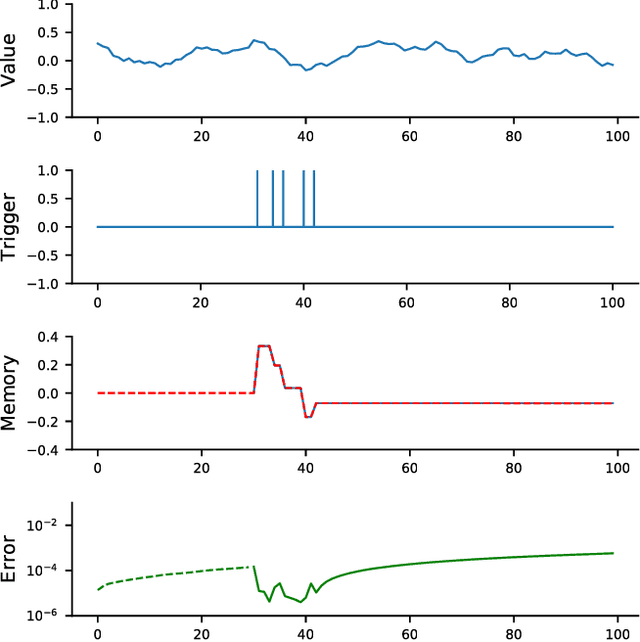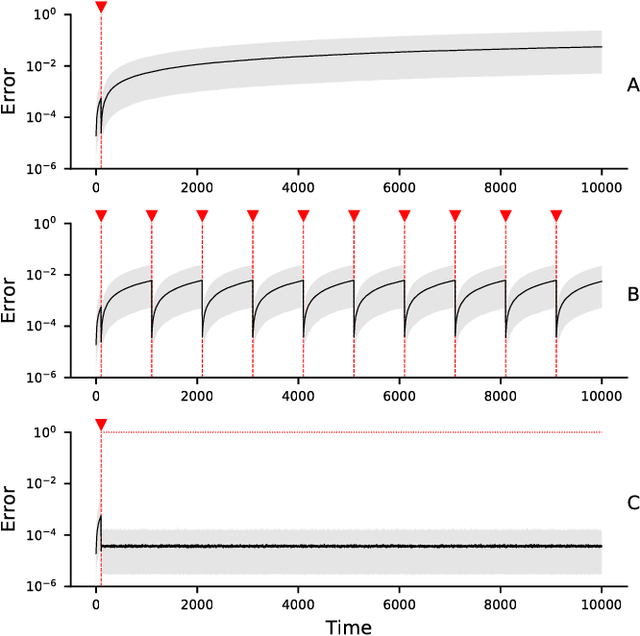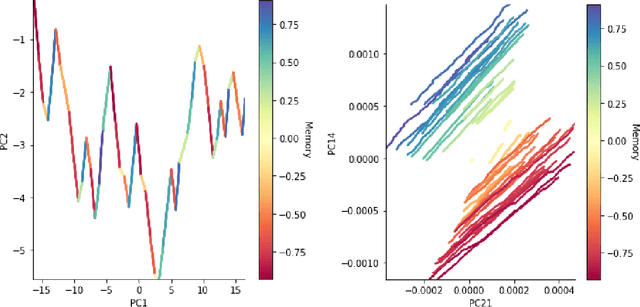A Simple Reservoir Model of Working Memory with Real Values
Paper and Code
Jun 18, 2018



The prefrontal cortex is known to be involved in many high-level cognitive functions, in particular, working memory. Here, we study to what extent a group of randomly connected units (namely an Echo State Network, ESN) can store and maintain (as output) an arbitrary real value from a streamed input, i.e. can act as a sustained working memory unit. Furthermore, we explore to what extent such an architecture can take advantage of the stored value in order to produce non-linear computations. Comparison between different architectures (with and without feedback, with and without a working memory unit) shows that an explicit memory improves the performances.
* International Joint Conference on Neural Networks (IJCNN), Jul
2018, Rio de Janeiro, Brazil
 Add to Chrome
Add to Chrome Add to Firefox
Add to Firefox Add to Edge
Add to Edge